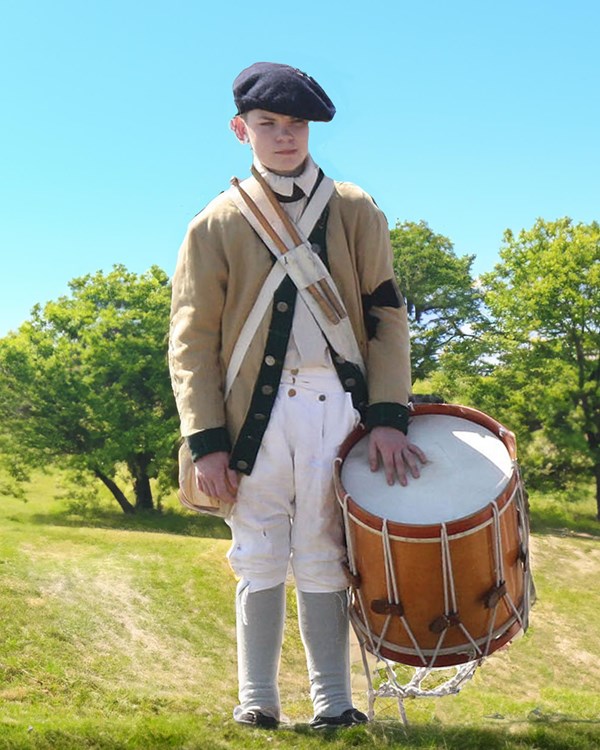Last updated: February 7, 2025
Person
Robert Wilson

National Park Service
Robert Wilson was born in New York City in 1763, one of six children. In 1775, prior to the start of the Revolutionary War, his father died. Either due to the fighting around the city, or the later British occupation of it, Wilson’s mother fled New York City with her children and resettled in Albany. Wilson’s enlistment might actually have resulted from a family visit. His uncle, James Gregg, had been commissioned a captain in the 3rd New York Regiment and would have been in the area recruiting men for his company in late 1776 and early 1777. However it happened, Wilson enlisted in the 3rd New York Regiment on January 29, 1777, to serve for the duration of the war. Being only 14 at the time, he joined his uncle’s company as a fifer. By the summer of 1777, Wilson and the 3rd New York Regiment were garrisoning Fort Schuyler (Stanwix) on the Oneida Carry.
While the British besieged the fort in August, Wilson’s first brush with death came much sooner. On June 25, Capt. Gregg, and Corporal Mattison went out hunting pigeons. Initially, Wilson joined the pair. Prior to reaching the hunting spot, for some unknown reason, Gregg sent his nephew back to the fort, and thereby saved him from death or capture. Gregg and Mattison were attacked by Indians scouting for the British. Mattison was killed and scalped, Gregg was seriously wounded, scalped and left for dead. Capt. Gregg survived, however, and after a long recovery period, returned to duty.
Wilson aided in the successful defense of Fort Schuyler and continued his service with the regiment on the western expedition against the British allied Six Nations groups in 1779. He also endured the Morristown, New Jersey encampment in the winter of 1779-1780. This was recorded as the coldest and snowiest winter of the 18th century. By November of 1780, the now 17-year-old Wilson had been promoted to sergeant. With the consolidation of the five New York regiments down to two at the end of 1780, Wilson followed his uncle into the 1st New York Regiment. In June of 1781, the 18-year-old Wilson was promoted to Ensign (modern 2nd Lieutenant) and earned the distinction of being the youngest officer in the Continental Army. An even greater distinction, however, was to follow.
When the formal surrender of British Army at Yorktown took place on October of 1781, Colonel Alexander Hamilton was overseeing operations in the American lines, and he chose Wilson to command the group of sergeants that would receive the 28 British colors (flags) that would be surrendered that day. When the British Ensigns balked at turning their colors over to sergeants, Wilson stepped in and personally received each flag and then passed it on to the sergeants. Hamilton later presented Wilson with a special sword to further commemorate the occasion.
After the war, Wilson settled in the central New York area and served as a Justice of the Peace and Postmaster for Manlius, NY. He married in 1803 and eventually had four children. He died at the age of 48, in May of 1811 of fever while traveling from Manlius to Utica, NY.
